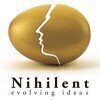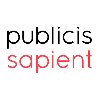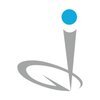Senior UX Designer
40+ Senior UX Designer Interview Questions and Answers

Asked in OpenText Technologies

Q. Can you describe your approach to a design task and outline your process?
My approach to a design task involves research, ideation, prototyping, testing, and iteration.
Conduct thorough research to understand user needs and goals
Generate ideas through brainstorming and sketching
Create prototypes to visualize concepts and gather feedback
Test prototypes with users to identify usability issues
Iterate on designs based on feedback and data

Asked in OpenText Technologies

Q. What is your experience with workflows, and can you provide specific examples?
I have extensive experience with designing and optimizing workflows to improve user experience.
Designed workflows for e-commerce platforms to streamline the checkout process and increase conversion rates
Optimized workflows for mobile applications to enhance user engagement and retention
Conducted user research to identify pain points in existing workflows and proposed solutions for improvement

Asked in OpenText Technologies

Q. Can you explain the design you created in the previous round?
I designed a user-friendly mobile app for tracking daily water intake.
Focused on intuitive interface for easy input of water consumption
Incorporated visual reminders and progress tracking for motivation
Implemented a feature to set personalized water intake goals
Utilized color-coded visual cues for quick reference
Conducted user testing to gather feedback for improvements

Asked in Qualys

Q. What do you do if developers don't agree with your design?
I would collaborate with developers to understand their concerns and find a compromise that meets both design and technical requirements.
Listen to developers' feedback and understand their perspective
Explain the reasoning behind the design decisions and the user needs
Collaborate with developers to find a solution that balances design and technical constraints
Consider alternative design options that may address developers' concerns without compromising user experience

Asked in OpenText Technologies

Q. What are the error cases that should be considered in the design?
Consider error cases in design to ensure user experience is not negatively impacted.
Input validation errors (e.g. incorrect format, missing required fields)
Network errors (e.g. slow or no internet connection)
System errors (e.g. server downtime, database errors)
User errors (e.g. accidental deletion, incorrect actions)
Security errors (e.g. unauthorized access, data breaches)

Asked in OpenText Technologies

Q. What are the various scenarios that may be presented to evaluate your thoughts and design skills?
Various scenarios to evaluate UX design skills
User research and persona creation
Wireframing and prototyping
Usability testing and feedback analysis
Accessibility considerations
Collaboration with cross-functional teams
Senior UX Designer Jobs




Asked in Qualys

Q. What is your favorite app? What do you think you can improve in that?
My favorite app is Spotify. I think it can improve by providing more personalized playlists based on user preferences.
Improve recommendation algorithm for better personalized playlists
Enhance user interface for easier navigation and discovery of new music
Integrate social features for sharing and discovering music with friends

Asked in Edusys Services

Q. What is the difference between UX and UI?
UX focuses on the overall user experience, while UI focuses on the visual and interactive elements of a product.
UX (User Experience) is about the overall experience a user has with a product, including usability, accessibility, and satisfaction.
UI (User Interface) is specifically about the visual and interactive elements of a product, such as buttons, menus, and layout.
UX design involves research, testing, and understanding user needs, while UI design focuses on creating visu...read more
Share interview questions and help millions of jobseekers 🌟


Asked in YUJ Designs

Q. How do you redesign a product to improve its user experience?
To redesign a product for better user experience, conduct user research, analyze feedback, create wireframes, prototype, test with users, and iterate.
Conduct user research to understand user needs and pain points
Analyze feedback from users and stakeholders to identify areas for improvement
Create wireframes and prototypes to visualize the redesign
Test the redesigned product with users to gather feedback and iterate on the design
Consider usability principles and best practices ...read more

Asked in YUJ Designs

Q. What tools do you use to ensure your designs meet business needs?
I use a variety of tools such as user research, stakeholder interviews, design thinking workshops, and prototyping to ensure my designs meet business needs.
User research to understand user needs and behaviors
Stakeholder interviews to align design goals with business objectives
Design thinking workshops to ideate and iterate on solutions
Prototyping to test and validate designs before implementation

Asked in Qualys

Q. What research did you do to back your design decisions?
I conducted user interviews, usability testing, and competitive analysis to inform my design decisions.
Conducted user interviews to understand user needs and pain points
Performed usability testing to gather feedback on design iterations
Conducted competitive analysis to identify industry trends and best practices

Asked in OpenText Technologies

Q. What is your understanding of OpenText products?
OpenText products are a suite of enterprise software solutions for content management, digital experience, and business process automation.
OpenText Content Suite for managing enterprise content
OpenText Experience Suite for creating personalized digital experiences
OpenText Process Suite for automating business processes
OpenText Documentum for managing documents and records
OpenText Media Management for digital asset management

Asked in OpenText Technologies

Q. What strategies should a designer understand?
A designer should understand various strategies to effectively solve design problems.
User research and testing
Information architecture
Wireframing and prototyping
Visual design principles
Collaboration with stakeholders

Asked in Jio

Q. Could you explain your experience in Augmented Reality (AR) and Virtual Reality (VR) and detail any achievements you have had in this domain?
I have extensive experience in AR and VR, focusing on user-centered design to create immersive and engaging experiences.
User Research: Conducted user interviews and usability testing for an AR application in retail, leading to a 30% increase in user engagement.
Prototyping: Developed interactive VR prototypes for a training simulation, which improved learning retention rates by 25% among participants.
Collaboration: Worked closely with developers and 3D artists to ensure seamle...read more

Asked in CES

Q. What are the UX Principles and processes you follow?
I follow UX principles such as user-centered design, usability, accessibility, and consistency in my processes.
User-centered design: Focus on understanding user needs and preferences.
Usability: Ensure the product is easy to use and intuitive for the target audience.
Accessibility: Design with inclusivity in mind to accommodate users with disabilities.
Consistency: Maintain a cohesive and familiar experience across all touchpoints.
Iterative design: Continuously gather feedback a...read more

Asked in Watchyourhealth.com

Q. Can you walk us through your design process?
My design process involves research, ideation, prototyping, testing, and iteration to create user-centered solutions.
Research: Gather user insights, analyze competitors, and define project goals.
Ideation: Brainstorm and sketch out potential solutions.
Prototyping: Create interactive prototypes to visualize the design.
Testing: Conduct usability tests to gather feedback and iterate on the design.
Iteration: Refine the design based on user feedback and testing results.

Asked in Nihilent

Q. How do you balance design goals and business goals?
Balancing design and business goals requires collaboration, user-centered focus, and iterative feedback to achieve mutual success.
Engage stakeholders early: Involve business leaders in the design process to align on objectives and expectations.
User research: Conduct user interviews and usability testing to ensure designs meet user needs while supporting business goals.
Iterative design: Use prototyping and feedback loops to refine designs based on both user feedback and busine...read more

Asked in Nihilent

Q. How do you conduct qualitative and quantitative research methods?
I utilize various qualitative and quantitative research methods to gather user insights and inform design decisions.
Qualitative methods include user interviews, where I ask open-ended questions to understand user motivations and pain points.
I conduct usability testing to observe how users interact with a product, gathering feedback on their experience.
Quantitative methods involve surveys with closed-ended questions to collect measurable data on user preferences and behaviors....read more

Asked in Houzeo

Q. How do you prioritize features in a design project?
Prioritizing features involves assessing user needs, business goals, and technical feasibility to deliver maximum value.
User Research: Conduct surveys and interviews to understand user needs. For example, prioritize features that address pain points identified in user feedback.
Business Goals: Align features with business objectives. If increasing user engagement is a goal, prioritize features that enhance user interaction.
Technical Feasibility: Assess the complexity of implem...read more

Asked in Hutech Solutions

Q. What's your approach to understanding user needs and pain points?
I employ a user-centered design approach, utilizing research, empathy, and iterative testing to uncover user needs and pain points.
Conduct user interviews to gather qualitative insights; for example, asking users about their daily challenges with a product.
Utilize surveys to quantify user feedback; for instance, measuring satisfaction levels on specific features.
Create user personas based on research to represent different user types and their needs, helping to guide design d...read more

Asked in YUJ Designs

Q. What relevant certifications do you have?
Certified in UX Design from Nielsen Norman Group and Google UX Design Professional Certificate.
Certified in UX Design from Nielsen Norman Group
Google UX Design Professional Certificate

Asked in Publicis Sapient

Q. How do you provide consultation on branding?
I provide consultation on branding by conducting research, understanding the target audience, creating brand guidelines, and collaborating with stakeholders.
Conduct research to understand the market and competitors
Identify the target audience and their needs
Create brand guidelines to ensure consistency in branding
Collaborate with stakeholders to align on brand strategy

Asked in Human Factors International

Q. Explain any 5 questions from the 14 questions you solved.
Explaining 5 questions solved in a UX design interview
Question 1: How do you approach user research? - I explained the importance of user research in understanding user needs and preferences.
Question 2: Can you give an example of a successful UX project you worked on? - I discussed a project where I improved user engagement and satisfaction through redesign.
Question 3: How do you prioritize features in a product design? - I shared my method of prioritizing features based on u...read more

Asked in Houzeo

Q. How do you incorporate feedback into your designs?
Incorporating feedback into designs is essential for creating user-centered products that meet user needs and expectations.
User Testing: Conduct usability tests with real users to gather feedback on prototypes, allowing for iterative improvements based on their experiences.
Stakeholder Reviews: Regularly present design concepts to stakeholders for their input, ensuring alignment with business goals and user needs.
Feedback Loops: Establish continuous feedback loops with users a...read more

Asked in Nihilent

Q. What is your typical design process from start to end?
My design process involves research, ideation, prototyping, testing, and iteration to create user-centered solutions.
1. Research: Conduct user interviews and surveys to understand needs. For example, interviewing patients to improve a health app.
2. Define: Create user personas and journey maps to clarify user goals and pain points.
3. Ideation: Brainstorm solutions through sketching and collaborative workshops with stakeholders.
4. Prototyping: Develop low-fidelity wireframes a...read more

Asked in Hutech Solutions

Q. Which UX design tools do you prefer, and why?
I prefer Figma and Adobe XD for their collaborative features and prototyping capabilities, enhancing the design workflow.
Figma: Excellent for real-time collaboration, allowing multiple team members to work simultaneously.
Adobe XD: Great for creating interactive prototypes with voice and animation features.
Sketch: A favorite for its simplicity and extensive plugin ecosystem, especially for UI design.
InVision: Useful for creating high-fidelity prototypes and gathering feedback ...read more

Asked in Accenture

Q. Explain the design process.
The design process involves understanding user needs, ideation, prototyping, testing, and iterating to create user-centered solutions.
Research and understand user needs and goals
Ideate and brainstorm potential solutions
Create prototypes to visualize and test ideas
Gather feedback from users through testing
Iterate on designs based on feedback
Collaborate with stakeholders throughout the process

Asked in CES

Q. How do you define problem statements?
Problem statements define the specific issue or challenge that needs to be addressed.
Problem statements should be clear, concise, and specific.
They should focus on the root cause of the issue rather than symptoms.
They help guide the design process by outlining the problem to be solved.
Example: 'Users are having difficulty navigating the website due to unclear menu labels.'

Asked in Deloitte Digital

Q. What is the process of UX design?
The UX design process involves research, ideation, prototyping, testing, and iteration to create user-centered designs.
1. Research: Understand user needs through surveys and interviews. Example: Conducting user interviews to gather insights.
2. Define: Create user personas and scenarios to clarify target users. Example: Developing a persona for a busy professional.
3. Ideation: Brainstorm ideas and sketch initial concepts. Example: Using mind maps to explore design possibilitie...read more

Asked in Hutech Solutions

Q. How do you define great user experience?
Great user experience is intuitive, efficient, and satisfying, meeting user needs seamlessly while enhancing engagement.
Intuitive Design: Users can navigate without confusion, like how Apple's iOS uses familiar gestures.
Efficiency: Tasks can be completed quickly, such as Google Search providing instant results.
Accessibility: Designs cater to all users, including those with disabilities, like screen readers for visually impaired users.
Emotional Connection: Engaging experiences...read more
Interview Questions of Similar Designations
Interview Experiences of Popular Companies








Reviews
Interviews
Salaries
Users

















